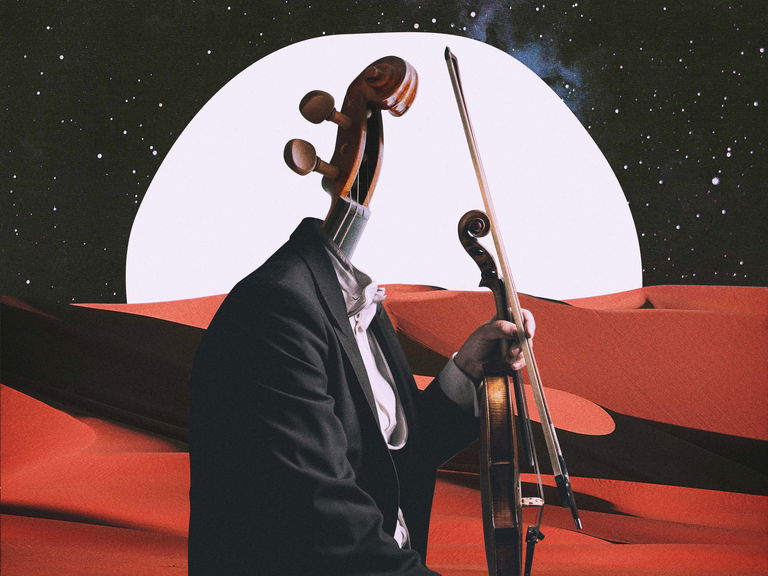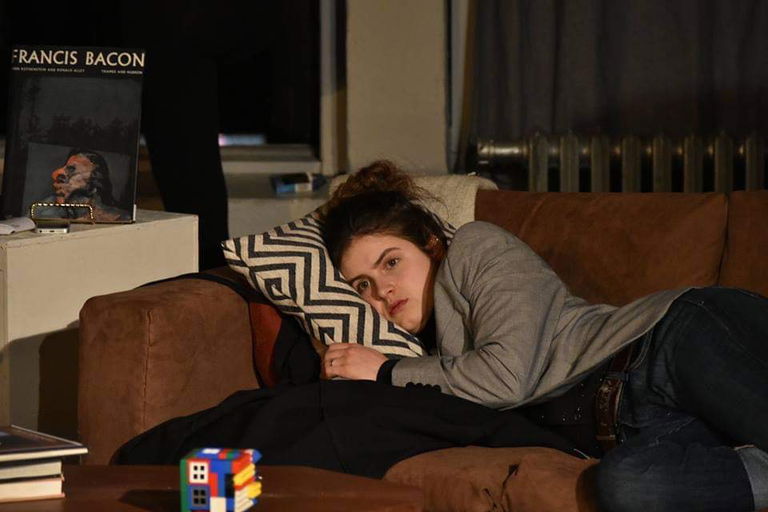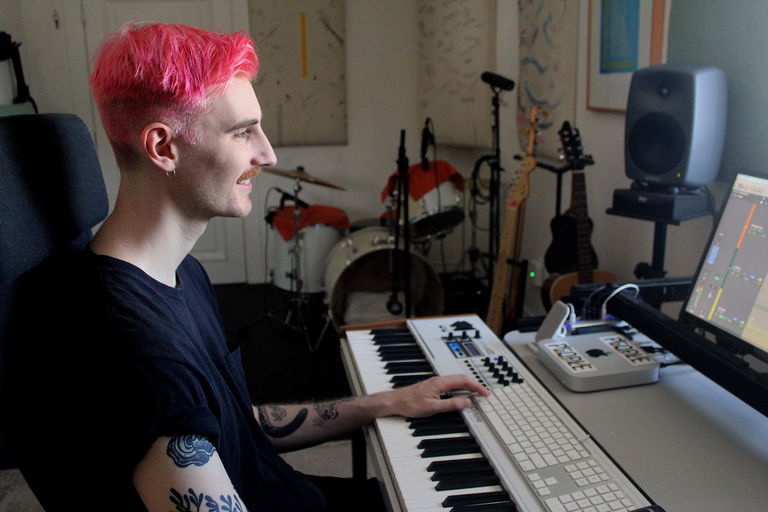
Helm Studios flips the for-profit music model to empower artists
Aly Laube for Culture Days
Jul 13, 2021
Josh Eastman started Helm Studios to give emerging artists and musicians a fighting chance at breaking into the notoriously pay-to-play studio recording industry. As the executive director and founder of Helm, they set out to do something different in Vancouver at the beginning of the pandemic, incorporating as a non-profit dedicated to bringing full-service, high-quality music production to artists without the necessary funds to record in expensive, professional studios.
“There was so little infrastructure supporting people and so little funding and accessibility to recording studios that I felt there needed to be a change, and there needs to be an option for those people that isn’t just completely DIY,” they say.
Things only got harder for emerging artists during the pandemic as jam spaces and venues shut down and tours were postponed or cancelled. Online events and ticket sales don’t make most independent musicians enough money to finance the creation of a record, posing yet another barrier to making music that’s up to industry standard. Redistributing access to professional music-making tools makes it possible for low-income artists to produce and subsequently distribute content, says Eastman.
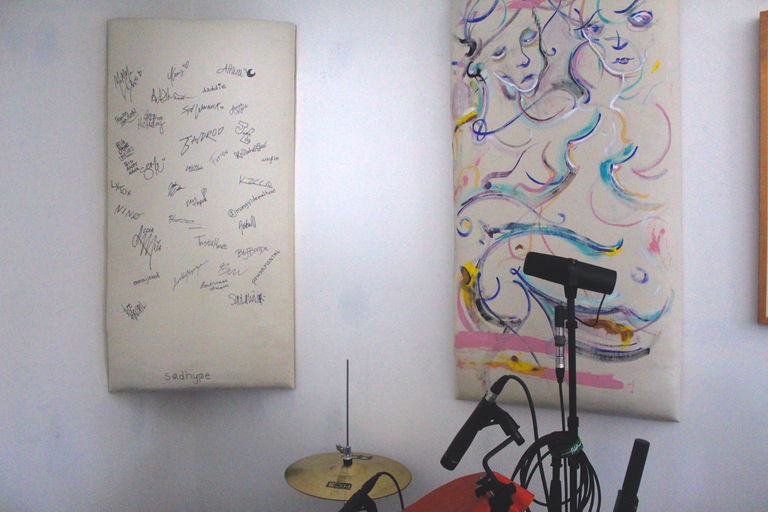
As advocates for equitable and community-focused creativity, Helm exists to give those shut out of Vancouver’s established studio circuit an opportunity to make something in a safe and accessible environment. Their mission to “uplift the voices of the many underfunded and marginalized artists in our community” was born out of Eastman’s reimagining of what arts and culture could look like in Vancouver, B.C.
Framing valuable art as profit-generating art disadvantages people who can’t afford to participate in these out-of-reach systems. Models like Helm’s are part of a growing movement to rebel against industry exclusivity and empower low-income and emerging creatives.
As noted on their website, “Helm operates on a sliding scale model, meaning the amount an artist pays depends on a variety of socioeconomic factors.” Studio rates are listed as a starting point, and the team is more than willing to construct a flexible budget with the artist.
“It’s really just been giving people their dignity and humanity and saying, ‘What’s your budget? How much can we take care of for you? Can we apply to grants for you?’ so it’s not up to their wage, but what they can do,” they say.
Before they were a producer, Eastman was an artist who also struggled to fund his practice and make it in the industry despite being in a relatively privileged position.
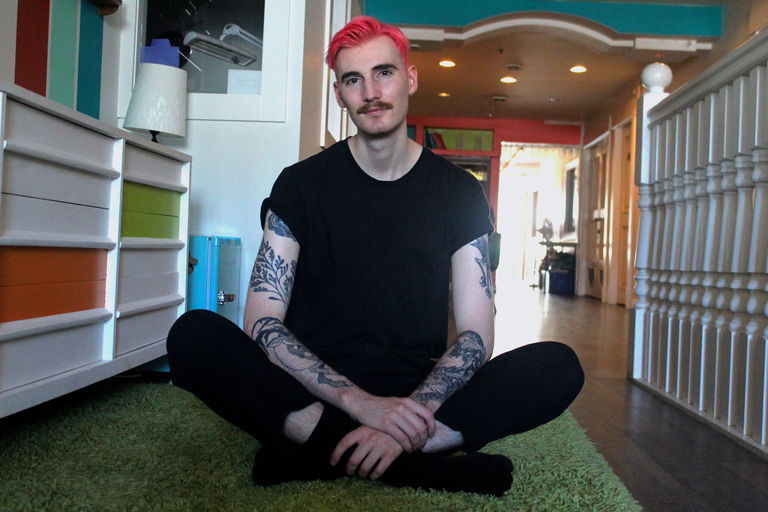
“I was fortunate to have taken lessons growing up and gone to public schools with good band programs and things like that. I also had the luxury of time to be spent on learning all those skills myself,” they say.
Driven by the goal of uplifting others through music, Eastman has ensured that skill-sharing is a core pillar of Helm’s work so that others don’t have to go through the same arduous and expensive process.
“I had just barely been capable of doing what I was doing with the privileges that I’ve been afforded. How could anyone without those same privileges ever do it themselves—let alone pay someone else to do the job?’” says Eastman.
For artists, working with Helm Studio is a unique experience from start to finish. Eastman offers mentorship, professional guidance, and skill-sharing in addition to subsidized or for-trade studio time. They provide a broad range of artists with professional services at all stages of the creative process, including composition, production, recording, mixing, and mastering, and Eastman often jumps in to play instruments on clients’ tracks.
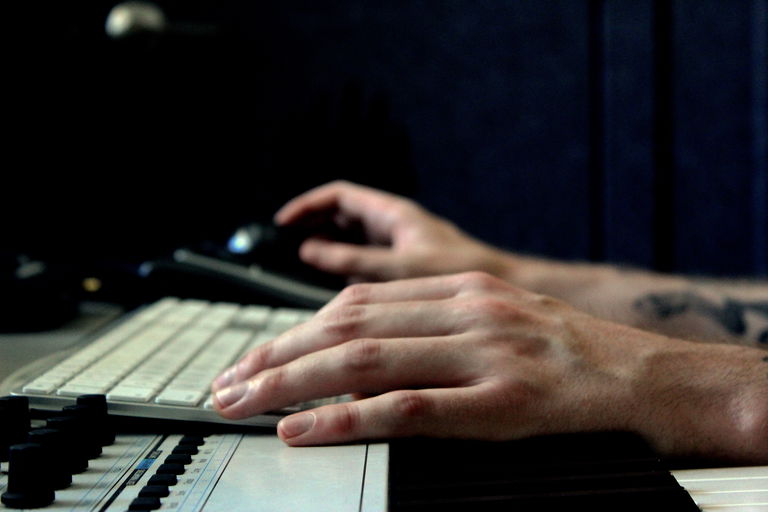
Occasionally, they also host workshops like their June 18 session led by Audio Engineer Olivia Quan. With admission-by-donation, proceeds from this event went directly to a fund used to subsidize projects for LGBTQIAS2S+ and BIPOC artists in Vancouver.
In the end, the goal is that everyone who steps into the facility leaves with a quality product and confidence to compete. Most of the artists who have laid down tracks at Helm Studios over the past 12 months wouldn’t have been able to make music this year without help from a studio like theirs, says Eastman.
“The system ignores a lot of people, and my goal is to give those others a fair chance,” they say.
Helm’s work is inseparable from broader conversations around equity, decolonization, and anti-racism across the country.
“As individuals like ourselves and communities as a whole begin to take action to make reparations and change the landscapes of our cities, that will affect everything,” they say. “It’s all of us making that change, changing the culture and doing something a little bit radical to repair the flaws in our systems.”
This article is part of a special blog series featuring writers and creatives from across Canada (and beyond!) with stories that both highlight and celebrate Culture Days’ 2021 theme, RE:IMAGINE. Explore more stories below.
- The Road Less Travelled: Three artists reimagine success and career by Linh S. Nguyễn
- Arts in Motion by Aaron Rothermund
- Reimagining Public Spaces: The Share-It-Square in Portland, Oregon by Laura Puttkamer
- Refresh: How a Year on Instagram Redefined Artistic Communities by Eva Morrison
- RE:PURPOSE by Mike Green
- Recalibrating: A Look at Opera InReach by Anya Wassenberg
- Reimagine—How the Disability Community Accesses the Arts by Rachel Marks
- Reimagining Community and the Workplace of Theatre by Natércia Napoleão
- Curating INUA, Canada’s newest Inuit art exhibit by Carolyn B. Heller
- When Less is More: What Theatre Can Learn From a Year in Slow Motion by Megan Hunt
- RE:ORCHESTRATING Our Future: Advancing Sustainable Development Through The Arts by Ryan Elliot Drew
- RE:DEFINING Normal: A Prescription for a Canadian Cultural Landscape in Recovery by Valerie Sing Turner
- Empathy Machines?: Exploring the Relationship between Immersive Art Technologies and Feeling by Jozef Spiteri and Sunita Nigam
- La poésie pour vivre différemment la pandémie par Jérôme Melançon



